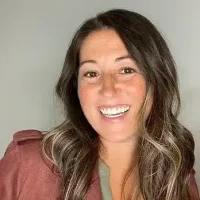Veterans, their families, and advocates often find navigating the intricacies of the VA benefits system a daunting task. Today, we embark on a detailed exploration of one critical aspect – VA Higher Level Reviews (HLR). Joining us is Garen Cone, a distinguished Air Force veteran, accredited claims agent, and a passionate legal advocate for veterans. Together, we aim to unravel the complexities of HLR and empower veterans to understand their options in the appeals process.

Garen Cone and AVET Appeals: A Legacy of Advocacy
Garen Cone’s journey into advocacy stems from personal experiences as an Air Force veteran injured during the Grenada conflict. With over three decades of dedication, he has become an accredited claims agent and founded AVET Appeals. This organization plays a pivotal role in assisting individuals who have faced denials in their claims and seek redress.
The Evolution with Appeals Modernization Act (AMA)
To comprehend the significance of VA Higher Level Reviews, we must first understand the context within the Appeals Modernization Act (AMA). Introduced to address the shortcomings of the Legacy process, which applied to appeals before February 2019, the AMA ushered in a new era with three distinct lanes for veterans to pursue.
While the Legacy process faced challenges, including timeliness issues, the AMA aimed to streamline the appeals process, providing veterans with more options and a clearer framework.
In-Depth Exploration of VA Higher Level Reviews (HLR)
1. Identifying Errors in Fact or Law
The journey into the Higher Level Review (HLR) process commences when a veteran receives a denial from the VA. In such cases, veterans believe there was an error in fact or law within the decision. This could encompass misinterpretations, misapplications, or even a failure to apply relevant laws to their specific case.
2. The Significance of Correct Forms
Under the AMA, Garen notes that adherence to using correct forms is paramount. Departing from the informal nature of the past, where claims could be submitted on a variety of platforms, today’s system demands precision. Failure to use the designated forms might result in the VA returning the submission, underscoring the necessity for standardization.
3. Navigating the HLR Submission
Garen further details that opting for the HLR avenue involves veterans sending their case back to the VA for reconsideration. This process includes completing the appropriate form, clearly outlining the identified errors, and affording the VA the opportunity to rectify them. The HLR submission becomes a critical juncture for veterans seeking a fresh evaluation of their case.
4. Exploring Informal Conferences
A distinctive feature of HLR is the provision for informal conferences. While no additional evidence can be introduced during this phase, veterans can engage in telephonic or video conferences with the senior rating veteran service representative overseeing their case. This personalized approach facilitates direct communication and a better understanding of the nuances involved.
5. The Limitations on Additional Evidence
Crucially, the HLR process focuses on reevaluating existing evidence and arguments, with no provision for introducing new evidence. It serves as a pathway for veterans who believe their case merits another review based solely on the information previously submitted.
Garen Cone’s Insights on VA Higher Level Reviews
Garen Cone, drawing from his extensive experience, emphasizes the significance of understanding these processes. He highlights the indispensable role of organizations like Prestige Veteran and AVET in guiding veterans through the complex landscape of benefits.
Beyond HLR: Unpacking the FAQ Sheet
While we’ve delved into the intricacies of VA Higher Level Reviews, Leah Bucholz and Garen Cone’s discovered FAQ sheet serves as a treasure trove of additional insights. As veterans navigate the appeals process, this comprehensive resource provides clarity on the nuances and intricacies of the AMA.
Conclusion
In conclusion, Garen notes that VA Higher Level Reviews represent a valuable option for veterans seeking redress after facing a denial. This avenue allows for a reevaluation of cases based on identified errors in fact or law. Garen Cone’s insights underscore the importance of comprehending these processes, emphasizing the collaborative role of organizations committed to guiding veterans through the intricate web of benefits.
Knowledge is a powerful tool, and sharing information is pivotal in supporting veterans on their journey to justice. Stay engaged, stay informed, and together, let’s ensure our veterans receive the benefits they rightfully deserve.
Also read: Bruxism and PTSD in Veterans Disability
At Prestige Veteran Medical Consulting, a veteran-owned company, we specialize in Independent Medical Opinions (IMOs) known as Nexus letters.
Our purpose is to empower YOU, the veteran, to take charge of your medical evidence and provide you with valuable educational tools and research to guide you on your journey.
Understanding the unique challenges veterans face, our commitment lies in delivering exceptional service and support.
Leveraging an extensive network of licensed independent medical professionals, all well-versed in the medical professional aspects of the VA claims process, we review the necessary medical evidence to incorporate in our reports related to your VA Disability Claim.
Prestige Veteran Medical Consulting is not a law firm, accredited claims agent, or affiliated with the Veterans Administration or Veterans Services Organizations. However, we are happy to discuss your case with your accredited VA legal professional.













